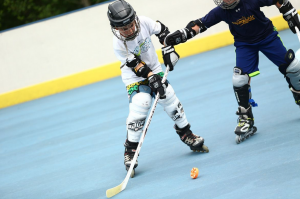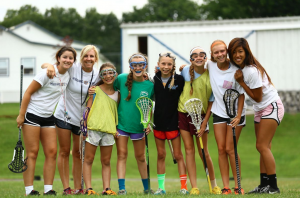 A recent phenomenon child psychologists have been focusing on is environmental recreation. What is environmental recreation? It’s as simple as getting children into the great outdoors! Playing outside improves vision, promotes social skills, increases attention span, produces vitamin D, prevents future bone damage and reduces the chance of heart related diseases, diabetes and stress. Playing outside not only improves a child’s physical abilities, but improves their mind and spirit as well.
A recent phenomenon child psychologists have been focusing on is environmental recreation. What is environmental recreation? It’s as simple as getting children into the great outdoors! Playing outside improves vision, promotes social skills, increases attention span, produces vitamin D, prevents future bone damage and reduces the chance of heart related diseases, diabetes and stress. Playing outside not only improves a child’s physical abilities, but improves their mind and spirit as well.
It’s no secret that today’s kids don’t spend nearly as much time playing outside as their parents did growing up. There are fewer kickball games with the neighborhood kids and more video games. There are fewer kids racing home when the streetlights come on, sweaty and dirty from hours running and playing outside. As we all know, many kids today are glued to a TV or computer screen until bedtime. The benefits for kids who play outside are endless, and when your child spends their summer at camp, they will develop a love and appreciation for the great outdoors.
When campers are participating in adventure activities, they are stepping out of their comfort zone AND surrounded by the beauty of Mother Nature. When they are waterskiing, wakeboarding, sailing or swimming, they are keeping their minds and bodies active and breathing in fresh air. When they are playing team sports like soccer, basketball, football and tennis, they are working up a sweat, becoming fit, and improving their vision. Studies show that kids who play outdoors have better distance vision than kids who spend a lot of time inside. With such great vision, maybe they should try archery!
 When kids are playing outside, they are interacting with other kids, which is a great way to develop social skills. Taking turns, sharing, being part of a team and other important rules learned on a playground (or in this case, on a field, on a boat, or flying through the ropes course) are vital for developing children’s social skills, and will transfer over into how they interact with people in the outside world. Kids who play alone and inside all the time don’t get a chance to learn these important skills.
When kids are playing outside, they are interacting with other kids, which is a great way to develop social skills. Taking turns, sharing, being part of a team and other important rules learned on a playground (or in this case, on a field, on a boat, or flying through the ropes course) are vital for developing children’s social skills, and will transfer over into how they interact with people in the outside world. Kids who play alone and inside all the time don’t get a chance to learn these important skills.
Spending time outside may also improve the time your child spends inside. By spending time outside and releasing all of that energy, kids are able to focus when it is time to come inside for structured time. Being outside also brings out the curious and investigative side of children, as they are naturally compelled to look, learn, touch and try new things they discover outside.
Kids these days are busy, and can find themselves stressed out and pulled in many different directions before they even hit high school. With the pressure of grades, sports, friends and other responsibilities, a little time outside can really help reduce stress. Time spent swinging, sliding, running, jumping, swimming, competing and discovering outside is fun and even therapeutic for kids who have a lot on their plate.
Research shows many kids these days are vitamin D deficient. You could run to the drugstore and pick up some vitamins, or you could encourage your kids to play outside and get it for free: from the sun! Getting enough vitamin D has been proven to prevent bone problems, diabetes and heart problems.
Because of these (and hundreds of other) reasons, summer camps have countless outdoor activities for kids to try. And, camps cater to all types of kids: a child focused on drama or dance will have just as many opportunities to get outside and enjoy the fresh air as a camper who is focused on athletics or watersports. This is the beauty of summer camp: campers growing appreciation for nature and the health benefits that go along with playing outdoors. Camp is good – actually, great – for all types of kids. The benefits are limitless!

 570-798-9831
570-798-9831